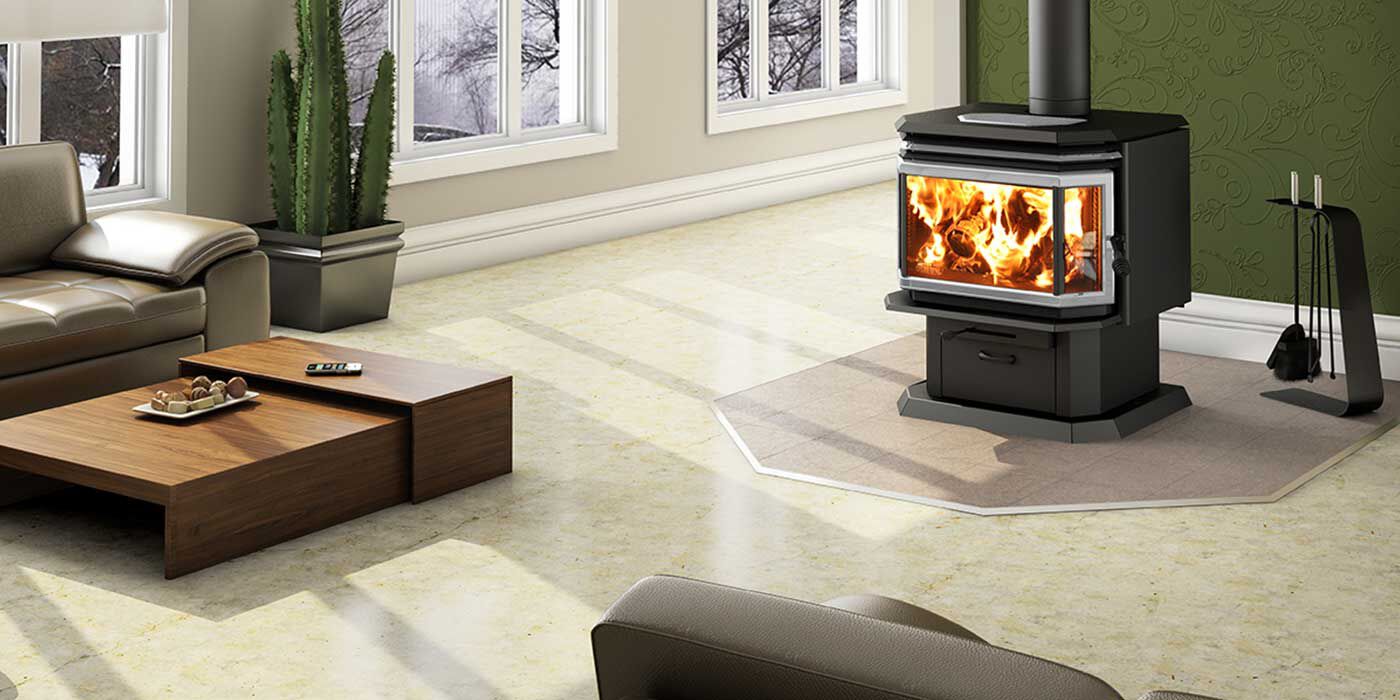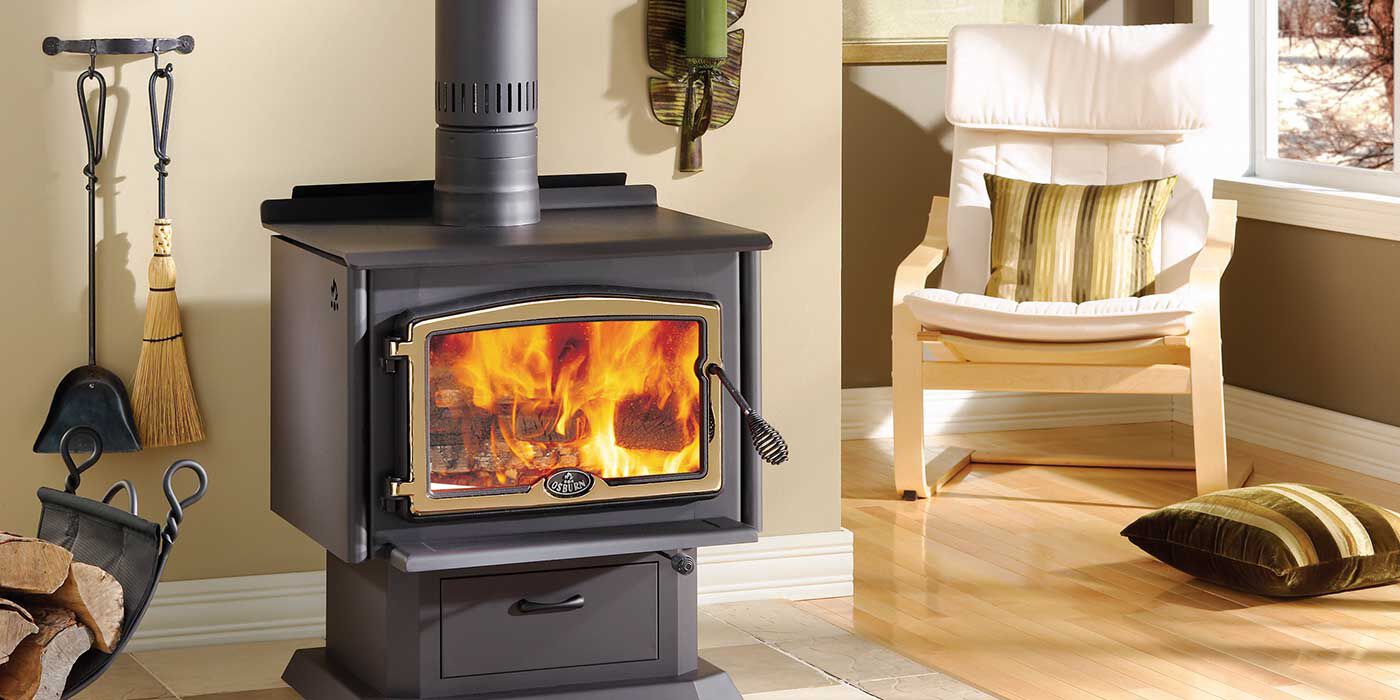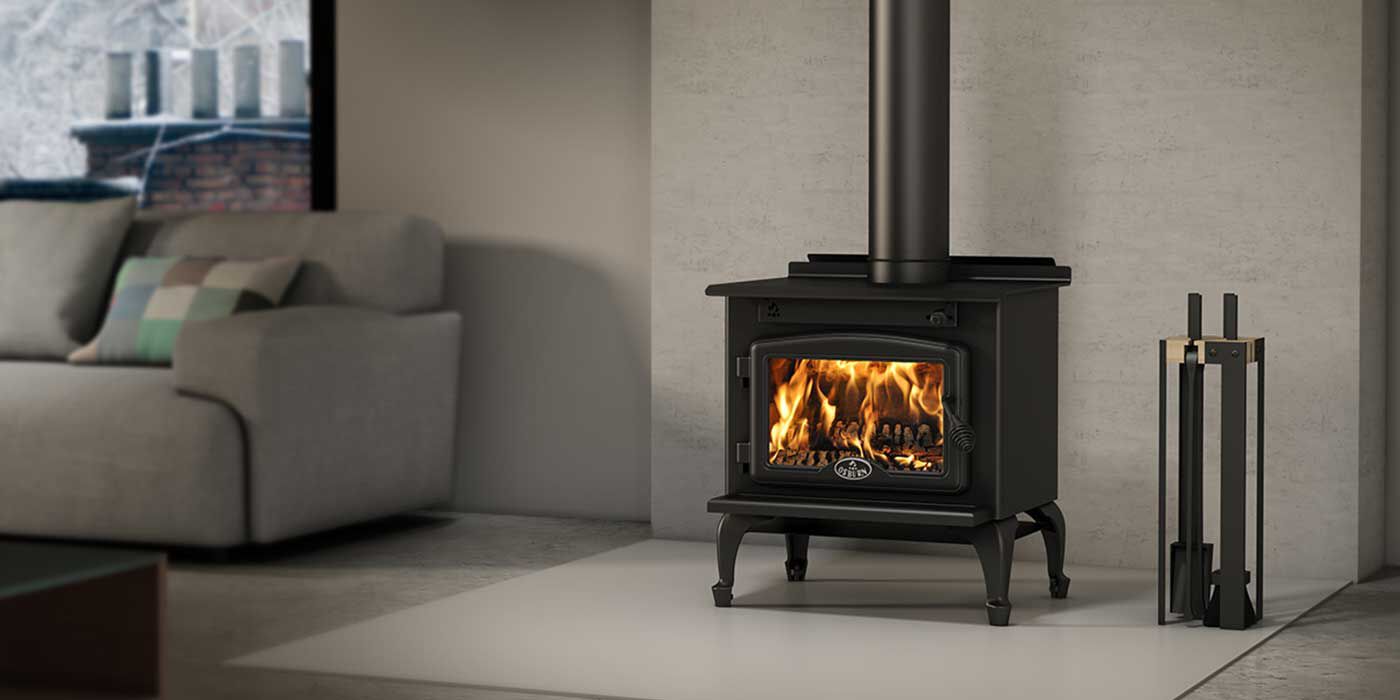By: Tom Regis, NFI Certified Master Hearth Professional
Last Updated: October 15, 2024
The Inflation Reduction Act of 2022 encourages American homeowners to make their properties more energy-efficient by providing federal tax credits and deductions that help reduce energy costs and demand.
In this article, we’ll explain how you can achieve an incredible tax break by upgrading your home with a high-efficiency wood burning stove.
Save Up to $3,200 Per Year on Taxes for Energy Efficient Upgrades
Federal income tax credits are available through 2032, which allow up to $3,200 annually to lower the costs of energy efficient home upgrades.
Additionally, you can take advantage of modified and extended Residential Clean Energy credit, which provides up to 30 percent income tax credit for clean energy equipment (rooftop solar, wind energy, geothermal heat pumps, battery storage, etc.) through 2032. This amount will decrease to 22 percent in 2033.
Save Up to $2,000 on Upgrading Your Wood Stove
With a high-efficiency wood burning stove, you can receive up to $2,000 in home improvement credits.
These credits can be combined with up to $1,200 in credits for other qualified upgrades made in one tax year.
What Products are Eligible for Tax Credits?
Qualifying products must have a thermal efficiency of at least 75% per the Higher Heating Value (HHV) of the fuel.
Not all wood burning stoves qualify for tax credits. To be eligible, your stove must have a certificate of approval from the manufacturer.
Woodland Direct offers a variety of high-efficiency wood burning stoves that qualify for tax credits. Our most popular models include:
Annual Tax Credit Limits
You can only receive up to $3,200 in efficiency tax credits per year.
You may claim up to $1,200 for any combination of small home improvements, like window and door replacements, insulation, and electrical upgrades. Additionally, you can receive up to $2,000 for any heat pumps, water heaters, and biomass stoves/boilers.
Because of the way annual limits are structured, it may be best to consider spreading out your home improvements over a few years to maximize your tax credit benefits.
Who Can Use the Residential Clean Energy Credit?
To receive a tax credit for your biomass stove or boiler, you must be a principal residence homeowner. New construction and rental properties do not qualify for tax credits.
A principal residence is a home where you live most of the time. The property must be in the United States and can include a house, houseboat, mobile home, cooperative apartment, condo, and manufactured home.
Pro Tip:
Before making a final decision based on credit, be sure to check with your tax professional. There may be other factors that affect your eligibility, such as income limit.
Why Should You Consider Claiming Tax Credit for Your Wood Stove?
Here are the key benefits of pursuing tax credit for qualifying wood burning stoves:
- Cost Savings – A tax credit directly reduces the amount of taxes owed, which can provide significant savings when filing. For example, a 30 percent tax credit significantly offsets a portion of the cost of your wood stove, installation, and necessary equipment.
- Environmental Benefits – Modern, high-efficiency wood stoves are better for the environment because they produce fewer emissions than older models. Homeowners who install these newer models lower their carbon footprints and contribute to sustainability efforts, while getting financial incentives.
- Heating Efficiency & Lower Utility Bills – Using a wood stove reduces reliance on electricity and gas for heating, lowering utility bills in the long run. By claiming a tax credit, the initial cost of upgrading to a modern wood stove becomes more affordable, making it a great investment for years of reliable heating.
- Higher Home Value – Upgrading to an energy-efficient stove increases your home’s value and makes it more attractive to potential buyers. Claiming a tax credit helps reduce the cost of such improvements.
We’re Here to Help
If you have any questions about claiming a tax credit for your wood stove or need help finding a qualifying model for your home, reach out to our NFI Certified experts today at 800.919.1904.
More Resources
Find the perfect wood burning stove for your home with this in-depth buying guide.
Learn why it’s important to season your firewood before you burn it.
Did you know that some states have restrictions on gas fireplaces? Discover what the laws are in your area.
 |
Thomas Regis has been a Technical Sales Representative at Woodland Direct for four years. An NFI-Certified expert, Thomas effortlessly directs his clients toward the perfect products, offering essential installation and safety advice. He's tackled projects of all sizes, from backyard fire pits to custom indoor fireplaces. He has even helped Amy Adams, owner of the Tennessee Titans, find a new fireplace for her home! Beyond his professional achievements, Thomas actively participates in community service projects and enjoys spending time on the basketball court. Call him or one of our experts in fire at 800.919.1904. |






